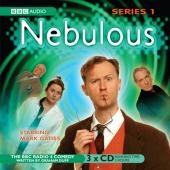Setting
Set in the year 2099, the series depicts the Earth as very different from today. Following a number of environmental disasters, such as "the Withering" – which resulted in the loss of a great deal of human knowledge including the vacuum cleaner and fire (although the latter came back fairly quickly) – and a "Cattle-clasm" that killed off most of the livestock, [12] the Earth has been reduced to a wasteland separated between "Withered Zones" and the remaining inhabitable areas. [13] The Withering shifted the Earth into a new orbit, resulting in disruption to the seasons and a reformed calendar. Every day of the week is now 25 hours long except for Thursday (which, due to time anomalies, has not occurred in over a decade), [14] while the change in the length of the year led to the creation of new months such as Janril, Febtober, and Marchuary. In addition, the dreary season of Hamble was created, which is permanently dark, cold and drizzly. [15] The Withering resulted in vegetarians, pigeons and gays becoming endangered species, [12] and completely wiped out tarts. [16]
The Earth's geography is also radically altered. A new mountain range was formed in Britain by a day-long ice age, and the Earth now has twelve and a half continents. Many locations have been displaced and reduced to islands, including Oxford University [16] and the London borough of Deptford, which is now in the Indonesian Ocean as a part of the Cockney Islands. [17] The Solar System is equally altered: Jupiter has been deep fried by Harry Ramsden's, Mercury and Neptune have been knocked together, and there was an initiative to destroy the Moon, which according to the show was deleterious to the nightlight industry. [18]
Religion also exists in the Nebulous universe. Pieced together following the Withering, theologians conclude that there were four true deities: the evil twins Yin and Yang, Feng Shui the destroyer, and merciful Bod, based on the children's television programme Bod , [19] the theme tune of which has become a hymn, sung in Gregorian chant. [10] Bod is analogous to God, hence the commonly used phrase "Oh my Bod!"
Storyline
Nebulous follows the adventures of the eco-troubleshooting team "KENT" (the Key Environmental Non-Judgmental Taskforce, named after the English county of Kent). The group is directed by Professor Nebulous toward the goal of restoring a natural balance to Earth. However, they are woefully under-funded; KENT was forced to open a laundry to supplement funds. [20] There is at least one other eco-troubleshooting team based in England, but despite their common goals they have a less-than-hospitable view of each other. LOUGHBOROUGH (the Legitimate Organisation Undertaking General Humanitarian Business Operations Requiring Optimum Unconditional Global Harmony, named after the Leicestershire town Loughborough) is run by Professor Nebulous’ ex-love interest, Doctor Erica Flazenby. By comparison to KENT it is over-funded and well-equipped, with bazers, black helicopters and info pills, which provide the user with information by ingestion. [16]
Nebulous both parodies and pays homage to several well known science fiction programmes and films in both its setting and plotlines, often incorporating several different elements within a single story: Professor Nebulous himself is similar to Bernard Quatermass, [9] a British scientist who led a research group and fought aliens in the classic science fiction serial The Quatermass Experiment and its sequels. KENT itself is based partly on the Department of Measurement of Scientific Work, nicknamed "Doomwatch", the eponymous organisation from the BBC science fiction television programme Doomwatch , and partly on the Doctor Who Organization "U.N.I.T", otherwise known as the "United Nations Intelligence Taskforce". [21] The second episode of series one, "The Loverly Invasion", is a direct spoof of the Doctor Who episode "The Claws of Axos", [22] while "The Deptford Wives" takes both its name and premise from The Stepford Wives (and also borrows from Jurassic Park ). [23] From the first episode of series 3 onwards, this also began to include the recent Doctor Who spin-off Torchwood and the ITV series Primeval , with references to "baby dinosaurs falling through a hole in time" and "the sheer amount of paranormal activity in the Cardiff area alone ... starting to threaten the Earth's plausibility shield". Episode 6 of that series also parodied the tendency in British sci-fi for attempts to take over the world to start in Britain, with the chief villain (played by Tenth Doctor actor David Tennant) stating "Funnily enough, that's a tax thing," as well as one of the Ninth Doctor's nicknames, "the oncoming storm" (with Nebulous known as "the oncoming drizzle").
